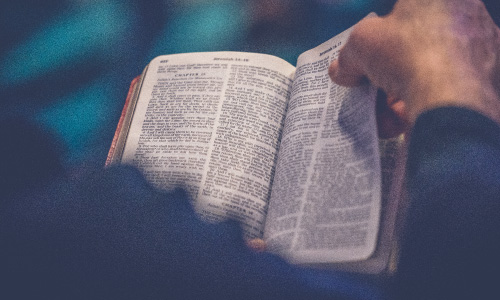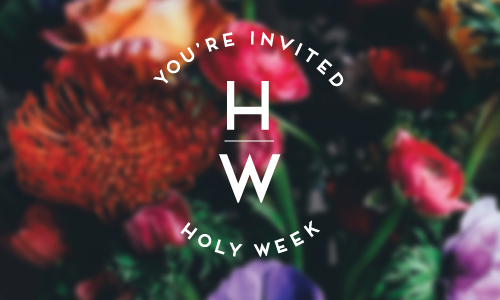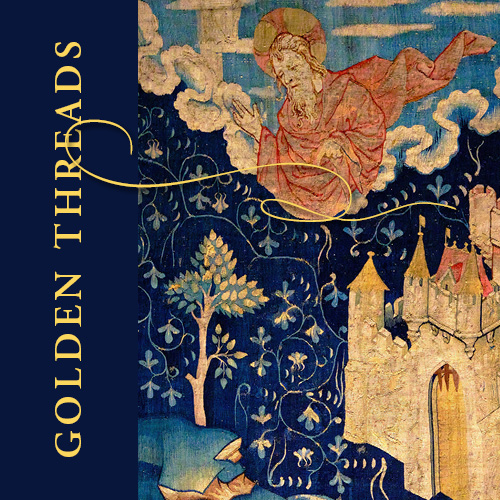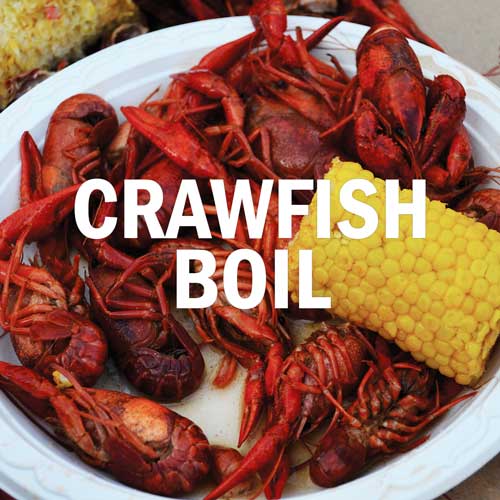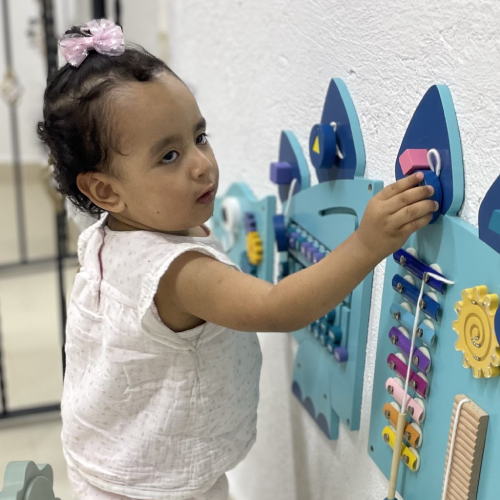Day 8 The Offering of Abel
Posted on: March 16, 2025
by: Gerrit Dawson, Senior Pastor
by: Gerrit Dawson, Senior Pastor
WEEK TWO
BEHOLD THE LAMB OF GOD!

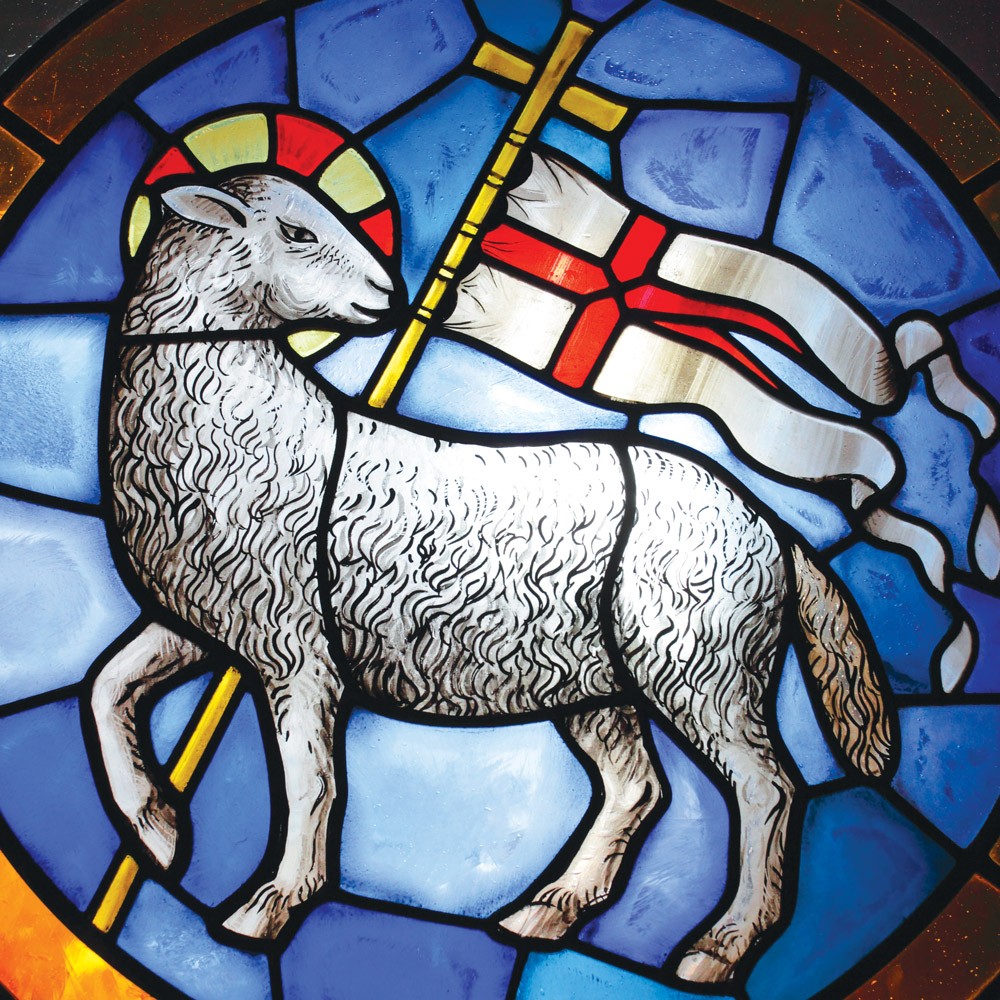 Lamb of God. 18th century, Florence, Italy. Alamy.
Lamb of God. 18th century, Florence, Italy. Alamy.
The joy of being created in the image of God has been corrupted by the reality of human rebellion against our Creator. Our disobedience invited death into the world. Everything since has been disordered. We are now, by nature, separated from God and one another. We require reconciliation. We need to be made one with God again.
The image of the lamb has long been a sign of such reconciliation. We find mention of a lamb from early in Genesis to the end of Revelation. This is an image that grows in meaning as the Bible unfolds. We associate important Biblical concepts with the lamb. Purity. Offering. Sacrifice. Blood. Substitution. Atonement.
In all these cases, the lamb has a vicarious function in Scripture. Here “vicarious” means something done on behalf of another. In Bible terms, a lamb without blemish could stand in for me the impure one. Offering that animal in sacrifice, I offer my life vicariously through the blood of the blameless lamb. In turn, I claim its innocence for me. I count on its life as a payment for my sin. I give up this lamb to God as a symbol of giving my heart and life to the LORD. In all these ways, the lamb stands in for me. I participate in a sacrifice for sin, a gift of thanks and a dedication of myself vicariously through offering the lamb.
Of course, we know that these sacrificed animals were but a foreshadowing of the true Lamb. They only point to the reality beyond comprehension. In Jesus, the Son of God gives himself to be a vicarious atonement. He lives out an eternal faithfulness as a man, a faithfulness in which all men and women, boys and girls can participate. And, as it gloriously turns out, the Lamb who was slain is the Lamb who reigns and will joyfully be worshipped into eternity.
The beautiful colors in this stained-glass window convey the joy and majesty of the Lamb who is our king. We feel both the sweet attraction of this kindly Lord, and the deep eternal mystery that the one who reigns is the one who was slain.
THE OFFERING OF ABEL
Every day, pray aloud worshipfully this golden thread that weaves through the entire tapestry of God’s intent for us.
Behold, the days are coming, declares the LORD,
when I will make a new covenant with the
house of Israel. . . .
I will put my law within them,
and I will write it on their hearts.
And I will be their God, and they shall be my people.
They shall all know me, from the least of them
to the greatest. . . .
For I will forgive their iniquity, and I will
remember their sin no more.
(Jeremiah 31:31, 33-34)
Daily Scripture
Genesis 4:1-10
Now Adam knew Eve his wife, and she conceived and bore Cain, saying, “I have gotten a man with the help of the LORD.” And again, she bore his brother Abel. Now Abel was a keeper of sheep, and Cain a worker of the ground. In the course of time Cain brought to the LORD an offering of the fruit of the ground, and Abel also brought of the firstborn of his flock and of their fat portions. And the LORD had regard for Abel and his offering, but for Cain and his offering he had no regard. So Cain was very angry, and his face fell. The LORD said to Cain, “Why are you angry, and why has your face fallen? If you do well, will you not be accepted? And if you do not do well, sin is crouching at the door. Its desire is contrary to you, but you must rule over it.” Cain spoke to Abel his brother. And when they were in the field, Cain rose up against his brother Abel and killed him. Then the LORD said to Cain, “Where is Abel your brother?” He said, “I do not know; am I my brother’s keeper?” And the LORD said, “What have you done? The voice of your brother’s blood is crying to me from the ground.
Hebrews 11:4; 12:22, 24
By faith Abel offered to God a more acceptable sacrifice than Cain, through which he was commended as righteous, God commending him by accepting his gifts. And through his faith, though he died, he still speaks. . . . But you have come . . . to Jesus, the mediator of a new covenant, and to the sprinkled blood that speaks a better word than the blood of Abel.
Picking Up the Thread

At first, this story baffles us. There was yet no law prescribing sacrifices. So why did both young men make an offering to the LORD? Does God really need stuff from us? Underlying this whole account is the reality that we were made for communion with God. That profound relationship finds expression through worship. And worship involves offering. We give ourselves back to the God who “gives to all mankind life and breath and everything” (Acts 17:25). Songs, prayers of praise, gifts and service all express the offering of our whole heart, mind and strength to our God.
This story reveals how deep within us is a yearning to make a return to the LORD. A child may offer a parent a crayon drawing of the family. In terms of mature art, it may not be very much. But the child longs for it to be accepted. A loving parent rejoices in the offering. That drawing may stay on the refrigerator for years! Similarly, we long for God to accept, even treasure, what we can bring forth from the life he gave us. Great satisfaction fills us from the inside out when we make such an offering. And we ache for this symbol of our very lives to be accepted. Through Scripture, we discover that our sincere act of worship pleases God as a sign of love.
Both young men made an offering. But why did God reject Cain’s gift of grain? After all, farming is what he did! We note in the text a subtle but important difference. Cain made “an offering.” Abel sacrificed the firstborn of the flock. There is a sense that Cain offered just part of what he had while Abel offered the best, the firstborn that represented his whole flock. His offering cost more; his worship ran deeper; his heart expressed a more whole-hearted faith.
This story establishes the importance of blood offerings. We learn in Leviticus 17:11 that “the life of the flesh is in the blood.” Through such a substitute, animal sacrifices would come to represent the offering of a person’s very life to the LORD.
Moreover, Cain’s envy led him to murder his brother. Here was the first act of lethal violence between humans. A primal wound in our relationships opened. The LORD confronted Cain with the words, “His blood cries up to me from the ground.” The very earth called out for justice for the taking of a life.
Our passage from Hebrews 12 links Abel’s sacrifice and his unjust death to the sacrifice of Christ. Jesus’ blood “speaks a better word than the blood of Abel.” The murder of innocent Abel points to the abject alienation in even the best of human relationships. Something is wrong, very wrong, in a world where brother sheds the blood of brother. The wound in humanity remains open. We see it oozing all around us. But paradoxically the murder of innocent Jesus creates the grounds for healing. Jesus’ intentional offering of himself to his Father in an obedience unto death atones for sin and reconciles us to God and each other.
Stitching It In
Paul gets right to the heart of our need to make an offering: “I appeal to you therefore, brothers, by the mercies of God, to present your bodies as a living sacrifice, holy and acceptable to God, which is your spiritual worship (Romans 12:1). We no longer need to make an animal sacrifice. As we shall see later this week, Jesus the vicarious Lamb of God makes a sufficient and once-for-all sacrifice for sin. But as humans made to worship the triune God, we still need to make an offering. We are only fulfilled when we offer up our lives to Jesus. We don’t have to shed blood. Jesus did that for us. But we must release control of our lives to Christ. We present ourselves to him: “Lord, I am yours!” In this way, we become a living sacrifice giving our lives to God through the obedience shown in every moment of faithful living.
What might this look like today? Perhaps you could:
View the first interruption of your plans as an opportunity God has ordained for you to show love, compassion and service.
Ask God to move you to initiate one text, email, card or call to someone who needs encouragement.
Give up for this day a habit or vice to which you are prone.
Make an over-and-above financial gift to God as a token of love.
Make a list of ten things you love about Jesus, then read those to him.
Praying Along the Pattern
Oh my God, oh my God, I am yours.
Now I make a return of praise and thanks.
All that I have comes from you.
Only your own of your own do I offer to you.
Yet you have given me discretion over so much.
I have thoughts that can be directed.
I have a voice that can form words and songs.
I have enough agency to make choices.
I can move out of myself towards others.
And I can wait in silence and stillness
Until your Spirit stirs me
With ways to offer all of these to you.
Oh my God, oh my God, I am yours.
Receive this offering of my life,
Through all these gifts returned to you,
Expressed today as you direct,
That you might know I mean it
When I say “I love you.”
Posted in:
Lent




 Close
Close

